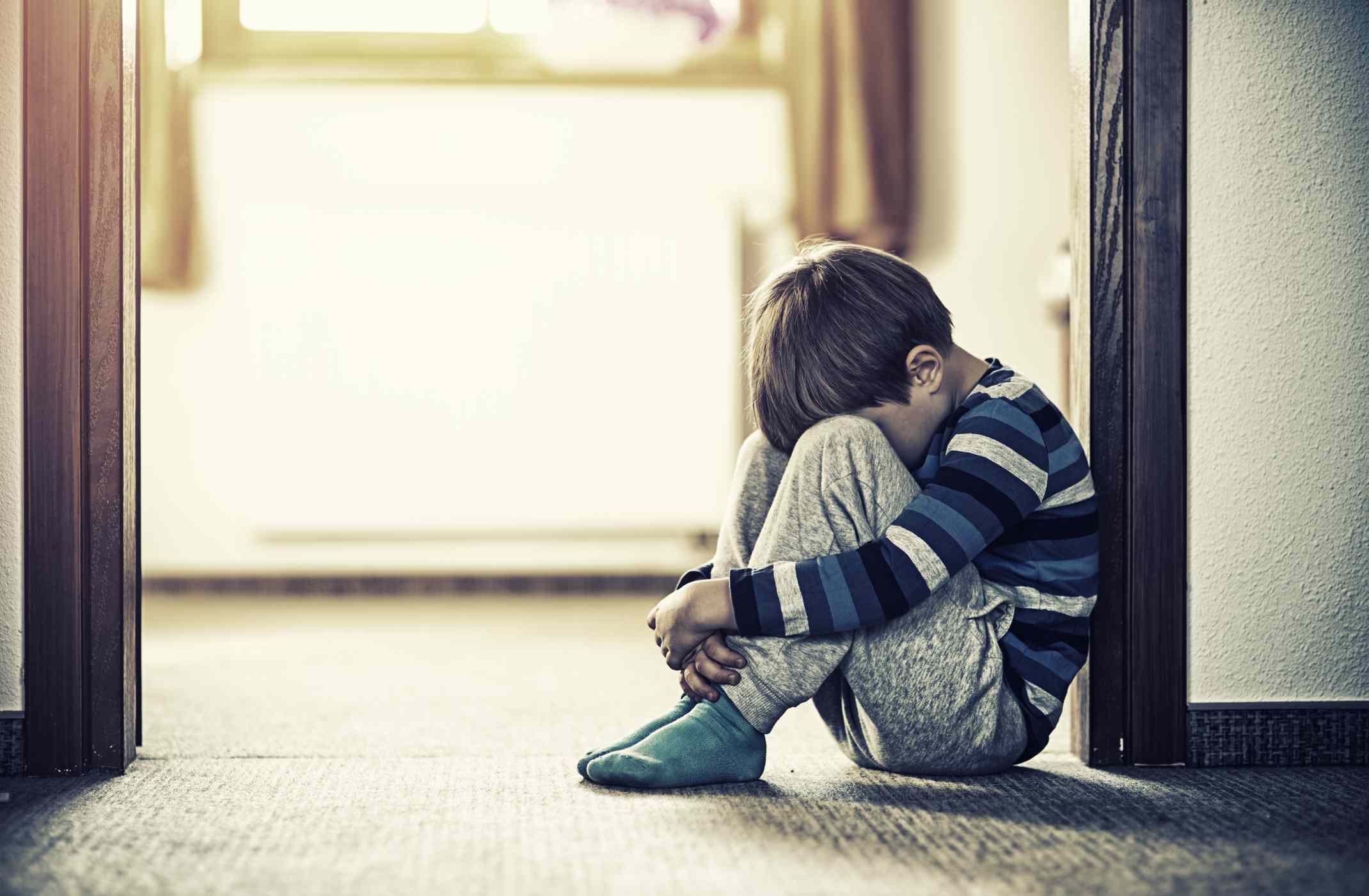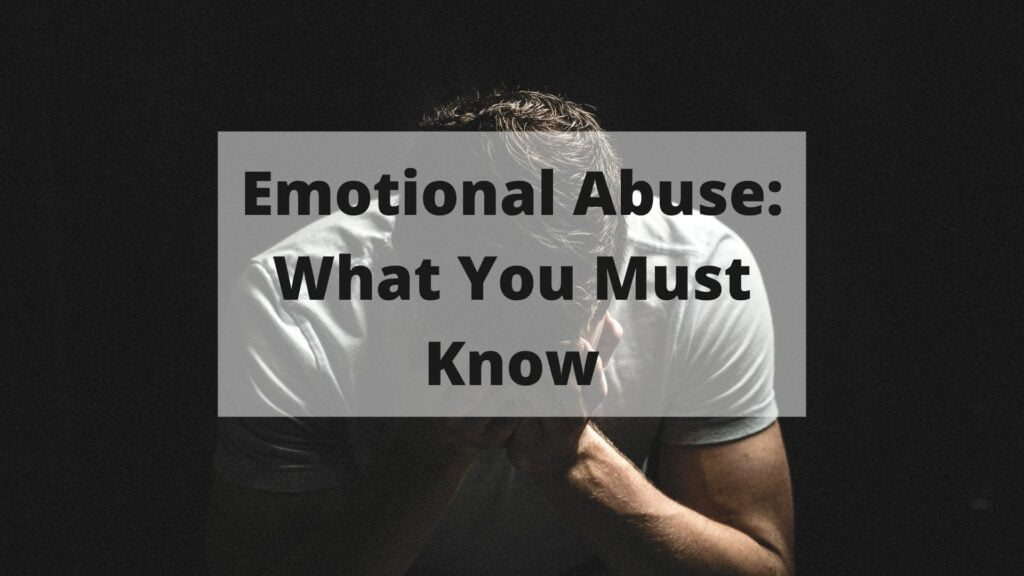One of the most harmful types of abuse is emotional abuse. This type of abuse can take various forms, but it always causes pain and your mental health and wellbeing. People are often unaware that they are being mistreated. They are usually in denial that their partner is assaulting them, therefore emotional abuse is often disregarded. If you believe you are a victim of emotional abuse, you must read this post!
Contents
- 1 What is Emotional Abuse?
- 2 Methods of Emotional Abuse
- 3 How Emotional Abuse Begins?
- 4 What Constitutes Emotional Abuse?
- 5 Types of Emotional Abuse
- 6 Emotional Abuse And Intimate Relationships
- 7 Emotional Abuse And Children
- 8 Are You Emotionally Abusive to Yourself?
- 9 Impact of Emotional Abuse
- 10 Healing From Emotional Abuse
- 11 Conclusion
What is Emotional Abuse?
Emotional abuse is a type of mistreatment in direction at one person by another (or others) in order to dominate, subdue, or instill fear. The abuser’s goal may be to humiliate and ridicule the victim into submission, but emotional abusers frequently play on their victims’ emotions through repeated verbal attacks that undermine self-worth over time until it takes root. Even the most self-assured people can be destroyed by emotionally abusive behavior.
When you are with someone who abuses you emotionally, your relationship will begin out so great. But this honeymoon period doesn’t last long. When things go south they do so quickly. It’s important to recognize the behaviors of an emotional abuser because they are usually red flags that there is something wrong with your relationship.
Emotional Abusers and Victims
Emotional abusers seek to exercise control over their victims in a myriad of ways. Most often, it begins subtly and gradually increases until you’re completely under this person’s thumb. Emotional abuse can be just as damaging — if not more so — than physical abuse, especially since it leaves no visible marks or injuries which makes proving mistreatment difficult. This has been coined “the invisible crime” for good reason.
Being in emotional abuse causes anxiety, sleep deprivation, chronic headaches, loss of appetite, and other symptoms that are similar to those seen in PTSD. Unfortunately, this form of treatment does little to persuade others that your abuser is guilty of any wrongdoing. Others may wonder why you don’t just leave or call him/her out on their bad behavior as you continue to suffer.
You must differentiate between an emotional abuser and someone who has genuine issues with low self-esteem.
Methods of Emotional Abuse

Abuse can take many forms, including intimidation, threats, manipulation, and criticism. Another common technique is gaslighting, in which one person persuades the other to mistrust their memories. Psychological torture can occur simultaneously with physical and sexual abuse, or it can occur on its own.
One or both partners may emotionally abuse the other in some relationships. In other cases, the abuse is directed solely at one side. Abuse may be more or less frequent and intense at different times. It may also vary from one period to the next.
Emotional abuse might be difficult to spot if it isn’t obvious. Some people justify their partner’s actions by claiming that they are in a foul mood. Because of their low self-esteem as a result of emotional abuse, the victim may believe they deserve to be treated badly. When someone is subjected to gaslighting, they may believe they are the ones who invented the abuse.
How Emotional Abuse Begins?
- The behavior does not stop or even slow down when the recipient starts crying or asks for time to calm down. Abuse may get more severe as the victim becomes more vulnerable and distraught.
- The conduct occurs several times every month, if not more.
- The person uses rude or insulting words and makes baseless charges.
- One-sided “arguments” occur when one person does all the talking and never listens.
- A threat of violence is made by the individual.
- The individual does not apologize after participating in abusive behavior.
- Abusers will not regard their victim’s statements as true, no matter how convincing they are.
- There are signs of sexual or physical abuse as well.
Angry or violent behavior can be abusive even if none of these criteria are present. If any of these factors are present on a regular basis, emotional abuse may be occurring.
What Constitutes Emotional Abuse?
Emotional abuse is a form of psychological assault with the intention of destroying someone’s self-esteem. In a relationship, check for the following indications of emotional abuse:
- Derogatory pet names or name-calling
- The assassination of a person’s reputation
- Yelling
- Sarcasm or creating public disgrace on a regular basis
- Making someone feel guilty
- Threats and intimidation
- Taking control of the finances
- Digital surveillance
- dictating what you can and cannot do
- Requiring respect and stifling communication
- Working actively to turn others against you
- You are to blame for their troubles.
- Rejecting their maltreatment or denying something you know is real are both examples of denial.
Emotional abuse, like other forms of abuse, can have long-term consequences for the victim. It is in intention to hurt a person’s self-esteem and confidence rather than their physicality.
Emotional abuse is most common in close relationships. Emotional abuse can occur in any marital, parent-child relationship, sibling, family member, or professional relationship.
This type of abuse is rarely acknowledged because, unlike other forms of abuse, both the victim and the abuser may be unaware of what is going on.
Types of Emotional Abuse
Emotional abuse can take many different forms. Three frequent abusive behavior styles include aggressiveness, denial, and minimization.
Aggressing

When someone accuses, blames, threatens, or compels another, this is known as aggressive abuse. Aggressive behavior is usually obvious and plain. The abuser’s attempt to evaluate or invalidate the recipient obliterates the equality and autonomy that are essential in healthy adult relationships. This parent-to-child communication style (which is ubiquitous in all forms of verbal abuse) becomes noticeable when the attacker assumes an aggressive posture.
Aggressive verbal or physical abuse might also take a more indirect route and be misinterpreted as “help.” Criticizing, advising, providing solutions, analyzing, probing, and interrogating another person are all things that can be done to help. In some cases, however, these actions may intend to humiliate, dominate, or degrade rather than to help. In these cases, the abusive individual’s underlying condescending “I know best” attitude is incorrect and creates an unfair playing field between peers.
Denying
Aggressive verbal or physical abuse can likewise be mistaken as “help” in a more indirect way. Criticizing, advising, proposing answers, analyzing, questioning, and interrogating another person are all options for assisting. These actions, on the other hand, may intend to humiliate, dominate, or degrade rather than to assist. The abusive person’s underlying condescending “I know best” attitude is inappropriate in these instances because it creates an unbalanced playing field between peers.
Minimizing
Minimization is a milder type of denial. When the abuser minimizes, he or she does not deny that an incident occurred, but rather than believing the receiver’s emotional reaction or experience, they question it. “You’re too sensitive,” “You’re making this thing out to be more than it is,” and “You’re taking this thing too far” statements imply that the recipient’s feelings and perceptions are untrustworthy and should be ignored.
Minimization is a more clever version of dehumanization, which occurs when the abuser implies that what you’ve done or said is unimportant or irrelevant.
You may find yourself in a position where you deny and diminish your feelings. Invalidation of truth, feelings, and experiences can gradually lead you to distrust and mistrust your perceptions and emotional experience, in addition to reducing self-esteem and causing conflict.
Emotional Abuse And Intimate Relationships
Monitoring in intimate relationships is a common occurrence. Abusers regularly read their partners’ emails and texts without their knowledge or permission. Domestic violence shelters supported clients whose abusive partners utilized secret mobile apps to eavesdrop on them, according to a 2014 NPR poll.
Some abusive spouses keep their monitoring a secret in order to ensure their partner’s loyalty and obedience. Others use monitoring as a form of gaslighting, making fun of the victim by revealing personal discussions with doctors and family members.
As a result of the monitoring and threats, one spouse may become isolated from the community. A person who is abusing their partner may spread rumors about them in order to discredit them. They could, on the other hand, forbid their partner from seeing specific people. The partner may comply with demands for evidence to “prove” their loyalty.
If an abuser is unable to utilize fear, they may use affection as a weapon. One partner may use guilt-tripping tactics to persuade the other to stay “for the sake of the kids.” Other abusers may make false suicide threats if their partner tries to flee. In most cases, recipients believe they must suffer abuse in order to protect individuals they love.
Emotional Abuse And Children

Emotional abuse is especially common among children. Young children may be oblivious to the fact that an adult’s behavior is unusual. They may hold themselves responsible for their parents’ actions, feeling that if they were better children, their parents would be more compassionate.
Some adults take advantage of a child’s innocence to gain power. A caregiver may place demands on a child that is beyond his or her developmental skills. They could, for example, reprimand common childhood behaviors like play and exploration. Emotional abuse can also be ignoring a child’s love and attention.
Unlike physical assault, emotional abuse leaves no scars. Because it leaves no marks on the body, it is difficult for others to notice. Children are usually taught to respect and obey authoritative figures. Abusers may be able to simply persuade kids to remain silent.
The following are some indications of emotional abuse in children:
- The child is not acting his or her age.
- They may act and speak in an abnormally “adult” manner, or they may engage in immature behaviors like bedwetting and tantrums.
- The child is socially awkward and has trouble forming friends.
- The child is unable to control his or her emotions. They may be hostile toward animals or other children, or they may show no emotion at all.
- The adult humiliates the child in front of others and urges others to do the same.
- The adult’s sanctions are harsh and out of proportion to the crime.
- Even when there is evidence to the contrary, the adult assumes the youngster is at blame.
Are You Emotionally Abusive to Yourself?
We typically let people into our lives who treat us the way we expect them to treat us. If we have a bad opinion of ourselves or believe we are inferior. We may seek relations or significant individuals who share our values.
It’s possible that if we’re willing to put up with other people’s abuse or give them a hard time, we’ll do the same to ourselves. If you’re an abuser or a victim, you should consider how you treat yourself.
Do you hear or think things like “I’m stupid” or “I never do anything right?” on a regular basis? The ability to develop healthy, meaningful relationships and self-esteem go hand in hand.
Impact of Emotional Abuse
When emotional abuse is repetition, it becomes more severe over time, and the subject loses self-esteem and confidence. The scars of abuse are hidden and appear to be worthlessness, self-doubt, or self-loathing, which makes the trauma worse. In research, mental/emotional abuse has the same negative consequences as physical abuse. As a result, you should get emotional abuse treatment as soon as feasible.
- Verbal attacks, name-calling, constant insulting remarks, and gaslighting can all gradually erode a victim’s sense of self.
- Over time, the victim will start to agree with the abuser, and they will become inwardly critical. This begins a vicious cycle of abuse in which victims learn that they are never good enough for anyone else.
- The victim will gradually withdraw from friends and isolate himself, believing that no one will love or care for them as much as the abuser does. Emotional abuse can result in a variety of mental illnesses, including anxiety, depression, sleeplessness, and so on. It can also have an impact on your physical health by causing stomach ulcers, heart palpitations, eating disorders, and other problems.
Healing From Emotional Abuse

There is hope for those who have been in emotional abuse to recover.
In your journey, you are not alone. Many people have gone through emotional abuse and found healing and meaningful connections in healthy relationships, just like you.
Here are some suggestions to aid you in your recovery.
Acknowledge the Abuse
It can be tough to consider and accept your previous abuse as a real event, but it is the first step toward healing from your traumas.
Many people find it difficult to admit that they have had been in abusive relationships in the past. This can be due to a view that “I’m ashamed of having been mistreated” or “What I went through wasn’t all that horrible.” Other times, people bury their past abuse in the hope that it would go away if they don’t address it.
One thing is certain: the longer your emotional hurt from abuse goes unrecognized, the more negative consequences it will have in your life.
As you begin to see your abuse for what it was, you will be able to recognize it for what it was. You’ll also start to reclaim personal control over your life.
When you make the decision to confront your old wounds. Recognize that it’s normal to experience the same emotions you did during your abuse. These terrible feelings have lingered inside you, and you will only be able to heal them if you embrace and move past them.
Change Negative Thought Patterns
Emotional abusers change your view of reality by feeding you lies about yourself and the world until you embrace their version of reality as the truth. After a period of time, you begin to accept these signals, which have an impact on your self-perception. These negative ideas might turn into a voice in your head (self-talk) that repeats what your abuser said to you.
As you begin to process the abuse you’ve experienced in the past. One technique to start healing is to challenge your self-talk and get rid of any negative thinking patterns you discover there.
Engage in Self Care
Many of the advice below may seem minor, yet they are critical to your recovery. You’ll have more energy, support, and nourishment to conquer the challenges you’re encountering if you start taking care of your requirements.
Conclusion
The effects of emotional abuse can occur in the individual and their relationships, and these consequences may last a lifetime. If you or someone close to you is experiencing emotional abuse, it’s important to speak up about what’s happening so that help can be provided. You deserve better than this treatment- please don’t continue with it! Remember that there are people who want to listen and understand your story of pain – we’re here for you if need us. We hope this post has been helpful as an introduction to understanding the signs of emotional abuse– now go out and make a difference by speaking up when somebody needs support!
For more information, please contact MantraCare. Abuse is a serious and harmful behavior that can cause physical, emotional, or psychological harm to a person. If you have any queries regarding Online Counseling experienced therapists at MantraCare can help: Book a trial Online therapy session


